READ MORE
Our Brands
- Announcements
- Debt Investors
- Supporting our clients
Investor Relations
- Announcements
Our Brands
Matters Reserved for the Board
The Board of Directors (the “Board”) of TP ICAP Group plc (the “Company”, together with its subsidiaries the “Group”) delegates all decision making on and management of the business to the Group Chief Executive Officer, with the exception of the actions and decisions set out in the Board Matters Reserved and any matter which is the subject of a delegation to a Board Committee..
The Group Chief Executive Officer is responsible for developing the appropriate business strategy and, once approved by the Board, for ensuring that the strategy is effectively monitored and executed in accordance with both the approved financial and operating plan and within a sound system of internal control and risk management.
The following matters are specifically reserved for approval by the Board. This Schedule is not, however, exclusive and does not derogate from (a) the Board’s overall duties and responsibilities as a matter of law or (b) the Board’s right to require any matter (irrespective of whether it has been delegated or not) that it considers relevant be brought to the Board for decision and/or information purposes.
1. Strategy and Management
1.1. Determine the Group’s purpose, values and strategy.
1.2. Monitor and assess the Group’s culture and the alignment of policies, practices and behaviours with the Group’s purpose, values and strategy.
1.3. Approval of the Group’s Strategy and long-term objectives which should promote the long-term sustainable success of the Company.
1.4. Oversight and scrutiny of the business, management and individual Director performance against agreed objectives.
1.5. Approval and oversight of the Group’s Tax Strategy and objectives, following recommendation from the Board Audit Committee.
1.6. Oversight of the Group’s activities ensuring:
⦁ competent and prudent management;
⦁ sound planning;
⦁ sound risk management;
⦁ an adequate system of internal controls;
⦁ adequate accounting and other records; and
⦁ compliance with statutory and regulatory obligations.
1.7. Approval of any corporate transactions, such as alliances, mergers, acquisitions, or disposals (including new and joint ventures), within the Group for (a) consideration of £3 million or more, or (b) those with an equity holding greater than 10% and consideration in excess of £1 million.
1.8. Review of performance in the light of the Group’s objectives, business plans and budgets, ensuring that any corrective action is taken.
2. Structure and Capital
2.1. Approval of the changes relating to the Company’s capital structure including reduction of capital, share issues (except under employee share plans), share buy-backs including the use of any treasury shares, subject to the Company’s Articles of Association, UK (where applicable) and Jersey law provisions and the FCA’s listing regime.
2.2. Significant changes to the Group’s corporate structure or management and control structure.
2.3. Approval of any changes to the Company’s domicile, listing or its status as a plc.
3. Borrowing and Guarantees
3.1. Approval of any material borrowing (other than by way of agreed facilities) or of any acceptance of credit (other than normal trade credit).
3.2. Approval of any material guarantee or indemnity or contract of suretyship or any other commitment by a Group company in respect of the due payment of money or the performance of any contract, engagement or obligation of any person or body other than a Group company, unless in the ordinary course of business.
3.3. Approval of any commitment by the Group holding company to any guarantee or indemnity for the performance of a subsidiary or associate.
3.4. Approval of any mortgage or charge over the whole or any part of the Group's undertakings other than charges relating solely to settlement and clearing facilities used in the ordinary course of business.
3.5. Approval of any material loans or credit, other than normal trade credit.
3.6. Approval of debt funding prospectuses and listing particulars.
3.7. Approval of treasury policies.
3.8. Oversight of Treasury strategy including interest rate and foreign exchange hedging, use of derivatives and investment of surplus cash,
4. Budget and Expenditure
4.1. Approval of the annual operating budget and any material changes to it.
4.2. Approval of the Group’s Expenditure Control Policy (“GECP”), which sets out the levels of authority required to approve or enter into commitments relating to expenditure and certain categories of transaction.
4.3. The Expenditure Control Policy specifies levels of authority for transactions and commitments which are reserved for the Board. These include any projects greater than £3 million.
5. Risk and Control
5.1. Annual review and approval of the Group’s current and future Risk Appetite, including the categories and extent of risk the Board regards as acceptable.
5.2. Review and approval of the Group’s Enterprise Risk Management Framework (“ERMF”), following recommendation from the Board Risk Committee.
5.3. Review of the recommendations from the Board Risk Committee in relation to the appointment, resignation, or dismissal of the Group Chief Risk Officer.
5.4. Approval of any investment or financial or other commitment which has the potential to result in a breach of any aspect of the Board’s approved Risk Appetite.
5.5. Consideration of matters escalated from the Board Risk Committee, and ensuring that a framework of prudent and effective controls is in place, including any:
(a) material risks on the Group’s business, strategy, and financial planning;
(b) regulatory or legislative developments that may have a foreseeable material impact on the Group;
(c) climate related risks that may have a foreseeable material impact on the Group; and
(d) risks arising from strategic initiatives.
6. Reporting to Shareholders
6.1. Approval, after review by the Audit Committee, of the full-year and half-year financial statements and the related results announcements.
6.2. Approval of trading statements and any other announcements regarding the financial results and performance of the Company.
6.3. Approval of the annual report and accounts, including the corporate governance statement and the remuneration report.
6.4. Approval of dividend policy.
6.5. Approval of the interim dividend and recommendation to shareholders of final dividends.
6.6. Oversight of the Group’s accounting records, including approval of any significant changes in accounting policies or practices and changes to the accounting reference date following recommendation from the Audit Committee.
7. External Communications
7.1 Approval of resolutions and corresponding documentation to be put forward to shareholders at a general meeting.
7.2 Approval of all circulars, notices of meeting or other documents to shareholders including listing particulars, though approval of routine matters may be delegated to a committee.
7.3 Approval of any announcement to the London Stock Exchange, other than urgent announcements or routine notifications regarding interests in shares, etc.
7.4 Approval of press releases concerning matters decided by the Board.
8. Board Membership and Other Appointments
8.1 Following recommendations from the Nominations & Governance Committee, approval of:
8.1.1 Changes to the structure, size and composition of the Board.
8.1.2 Appointment and reappointment of Directors of the Company, subject to shareholder approval where appropriate.
8.1.3 Appointment of the Chair of the Board, Senior Independent Director, and Group Chief Executive Officer.
8.1.4 Determination of the membership and the chairs of the Board committees.
8.1.5 Authorisation of requests from Directors for authorisation of situations of actual or potential conflict of interest including those arising from an external directorship or other business position or interest held by the Director.
8.1.6 Determination of the independence of Directors on appointment and then annually thereafter and whenever any new interests or relationships are disclosed by a Director (in accordance with the criteria set out in the UK Corporate Governance Code).
8.2 Ensuring adequate succession planning for the Board and senior management, so as to maintain an appropriate balance of skills, experience and diversity within the Board and senior management.
8.3 Continuation in office of any Director at any time, including the suspension or termination of service of an Executive Director as an employee of the Company, subject to the law and their service contract.
8.4 Approval of the appointment or removal of the Company Secretary.
8.5 Approval of the appointment, re-appointment or removal of the external auditor to be put to the shareholders for approval, following the recommendation of the Audit Committee.
9. Remuneration
9.1 Determining the remuneration of Non-executive Directors, including the Board Chair.
9.2 On the recommendation of the Remuneration Committee, approval of:
9.1.1 The Company’s board policy on remuneration, including the Directors’ Remuneration Policy and the Directors’ Remuneration Report, and submission to shareholders for approval (as required).
9.1.2 New share incentive plans or material changes to existing plans prior to submission to shareholders for approval (if required).
9.1.3 Material changes to the Group’s pension and benefits arrangements, including changes in investment policy.
10. Delegation of Authority
10.1 Approval of the written statement of the roles and responsibilities of the Board Chair, the Group Chief Executive Officer, and the Senior Independent Director.
10.2 Establishing Board committees and the Group Executive Committee (“GEC” or “ExCo”) and approval of their terms of reference and any amends hereto.
10.3 Receiving reports from the Board committees and the ExCo on their activities.
11. Corporate Governance Matters
11.1 Determining and reviewing the Group’s overall corporate governance arrangements.
11.2 Undertaking a formal and rigorous annual review of the Board, Board Committees and individual Directors’ performance, with an externally facilitated review taking place every three years.
11.3 Ensuring effective engagement with the Company’s key stakeholders.
11.4 As part of Board discussion and its decision making, considering the balance of interests between shareholders, employees, suppliers, clients, regulators, community and other stakeholders.
11.5 Reviewing, through reporting from the Audit Committee, the mechanisms that are in place for the workforce to raise concerns in confidence, and the reports arising from the operation of those mechanisms, and ensuring that arrangements are in place for the proportionate and independent investigation of any such concerns and for any appropriate follow up action.
11.6 Undertaking appropriate engagement to ensure a clear understanding on the views of the Company’s shareholders, the Group’s employees and other key stakeholders. This could include receiving reports on the views of the Company’s shareholders.
11.7 Approval of any transaction with a related party, following recommendations from the Nominations & Governance Committee as appropriate.
11.8 Approval of any change of Company name or major change in the Company’s branding or corporate image.
11.9 Approval of Diversity, Equity and Inclusion reporting, including Gender Pay Gap, and the Modern Slavery Statement following recommendation by the Nominations & Governance Committee prior to its publication.
12. Policies
12.1. Approval of policies, including the Group’s:
13.1.1 Securities Code;
13.1.2 Environmental, Social and Governance policies; and
13.1.3 Charitable Giving Policy.
13. Environmental, Social and Governance (“ESG”)
13.1 Oversight of the Group’s culture, conduct and diversity, including associated initiatives, objectives, policies and reporting.
13.2 Following recommendations from the Nominations & Governance Committee, approval of:
14.1.1 Social responsibility and environmental matters.
14.1.2 The Group’s strategy, policies and practices with respect to corporate giving, the foundations or charities significantly supported and any other philanthropic programmes of the Company.
13.3 Oversight of the Group’s climate change programme, including the embedding of the Task Force on Climate-related Financial Disclosures (“TCFD”)’ Four Pillars (Governance, Risk, Strategy, and Metrics) across the Company.
13.4 Determining the mechanisms used by the Board and its committees to understand the views of the workforce.
13.5 Consideration of the results of employee engagement surveys and implementing subsequent actions.
13.6 Setting of Group culture objectives.
13.7 Approval and making of charitable or political donations and maintaining oversight of Charity Day.
14. Other
14.1. Approval of the appointment of the Group’s principal professional advisers.
14.2. Approval of the prosecution, defence or settlement of litigation being material to the interests of the Group and/or with a settlement cost above £3 million. Materiality is to be determined by the Group General Counsel.
14.3. Approval of the indemnification of Directors and approval of the overall insurance for the Group including Directors’ and Officers’ liability insurance.
14.4. Approval of amendments to this schedule of Matters Reserved for the Board.
Approved and adopted by TP ICAP Group plc on 28 November 2023.
Matters Reserved for the Board

Copyright © 2026 TP ICAP















